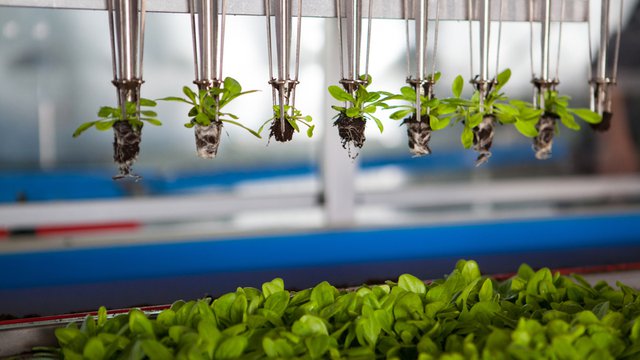
What is plant biotechnology?
Edited on Nov. 17, 2023

Plant biotechnology is a constantly evolving field that combines scientific knowledge with technological advances to enrich crops. Over the last few years, this science has offered great benefits to agriculture in general, achieving a more sustainable and environmentally responsible production model.
Through this new methodology, farmers can create plant strains that are resistant to diseases, pests and climate variations. This could have a considerable effect on the availability and excellence of food for the population in the future, as studied in degrees such as the Degree in Biotechnology at Universidad Europea.
Plant biotechnology definition
Plant biotechnology is a segment of biotechnology that focuses on the application of modern methods to enhance, direct and regulate biological processes in plants. The aim is to obtain products that are more beneficial to humans.
The techniques in this field are applied during the selection, evolution and genetic progress of plant crops, as well as in the biological control of pests and diseases.
This branch of biotechnology produces genetic variations that exhibit the qualities sought after by the population. This leads to improvements in yield, quality and resistance of crops to possible adverse conditions.
Plant biotechnology techniques
Genetic biology is a science with an eminently practical vocation, which is continually advancing in order to have increasingly useful applications. The following are three of its main methodologies:
- Genetic improvement: the intention is to enhance existing plants through selective crossing or genetic modification. This achieves desired qualities, such as immunity to disease, increased yield, reduced nutritional requirements, and the ability to withstand high temperatures and water shortages.
- Gene engineering: This procedure is used to introduce genetic material from different species into plants, thus facilitating the transfer of desired qualities between different living organisms.
- Transgenic crops: Transgenic crops are those that have either been genetically altered to show resistance to herbicides or insect pests, or to generate their own intermittent pesticides. Through this methodology, farmers can manage insect pests using a single chemical agent and thus reduce production costs.
Benefits of plant biotechnology
The benefits of this important science can be summarised as follows:
- Improved plant characteristics: biotechnology can transfer genetic traits from one plant to another, resulting in the creation of a plant with more favourable and advantageous attributes. Delayed ripening, improved plant structures or optimal nutrition, for example, can be achieved.
- Exploiting natural diversity: by being able to improve any plant species, plant biology contributes to the enhancement of natural diversity. This increases both the number and strength of plants with resistant characteristics.
- Beneficial to the environment: Plant biology has made great strides in the progress and conservation of the ecological environment through its ability to reduce dependence on fossil fuels and the need for soil tillage. Overall, it is a great alternative to mitigate the damage caused to the environment.
- It contributes to scientific studies: Like any other branch of biotechnology, plant biology contributes to a number of important ongoing scientific research.
- Improving disease resistance: Genetic manipulation of plants is done for many purposes, but one of the most important is protection. When their immunity to diseases and pests is strengthened, a constant and lucrative production is achieved, with the associated supply-side benefits.
To conclude, it seems relevant to point out that thanks to the advances in biotechnology that are studied in related degrees such as the Degree in Biotechnology, many people are now able to work in biotechnology careers. Consequently, agriculture has not only become more accessible, but also allows for higher profits, better quality and higher crop yields without compromising ethical values linked to the preservation of the environment and human rights.
Article published on Sept. 7, 2023